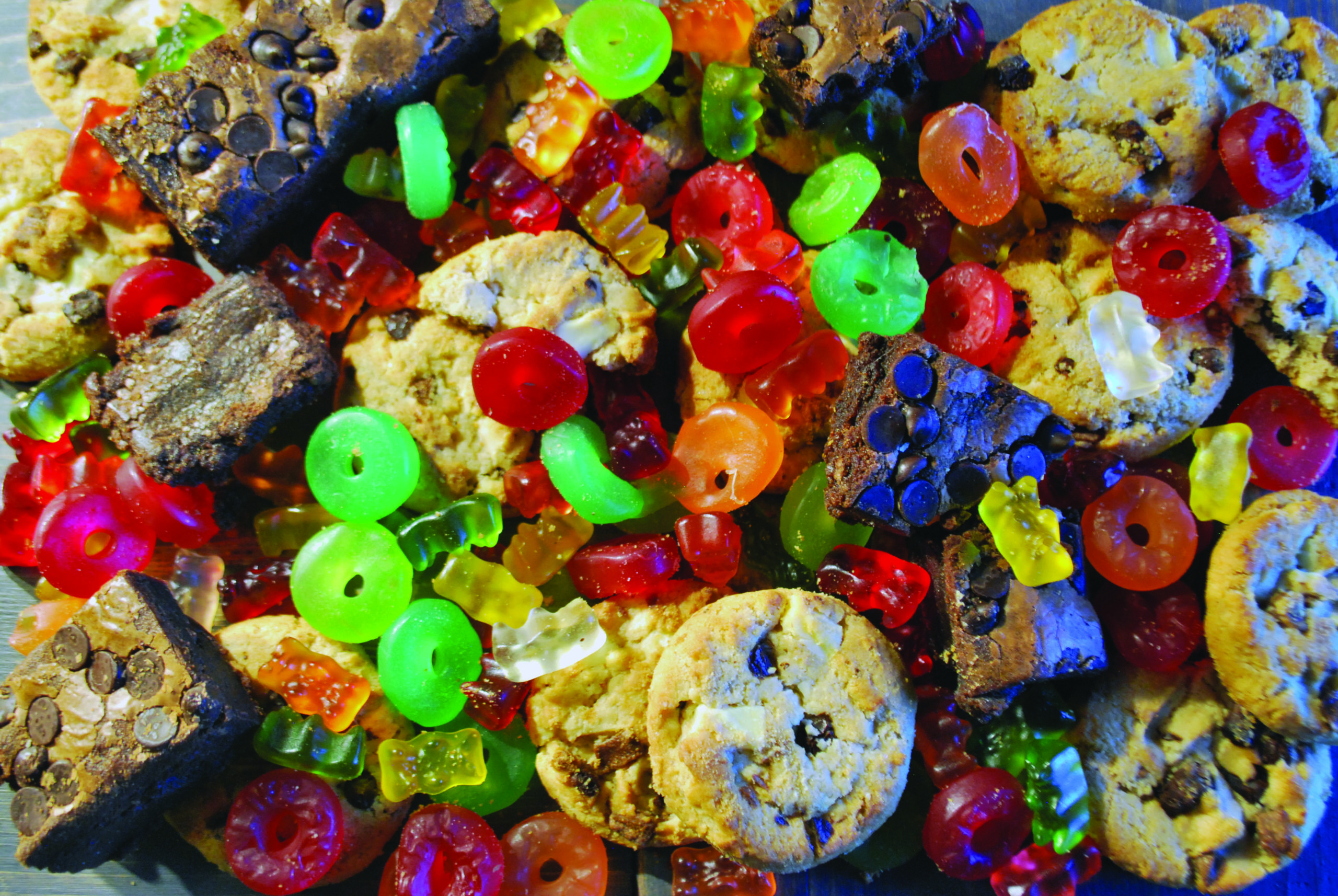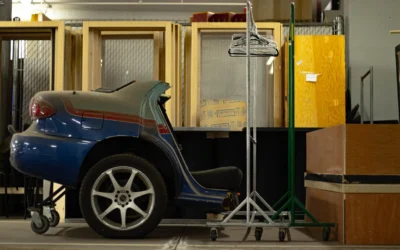From the moment the legalization of cannabis was announced, people had questions: Will it be more expensive than on the black market? Can I have it delivered to my house? Will the nation’s children be irreversibly corrupted by the beguiling power of the Devil’s Lettuce? Lacombe-Ponoka MLA Ron Orr even suggested legalization could lead to a full-blown communist revolution, reported CBC in November 2017.
Since the common forms of recreational cannabis — the kinds that are smoked — became legal on Oct. 17, 2018, those questions have largely been cleared up, and for the most part, life has been business as usual. However, exactly one year later, the other forms of cannabis — edibles, extracts, and topicals — were also legalized, raising a whole new set of potential issues. Perhaps the nascent revolutionaries were just waiting on their brownie and gummy candy field rations to get started, for example.
Though Oct. 17, 2019, was the formal day of legalization, all this really meant was that licensed producers could begin submitting their products for the 60 to 90-day approval and procurement process. This is the main reason why edibles didn’t actually start hitting the market until just last month. The products that made it onto the shelves depended on having no delays or issues with their applications for both product-by-product approval and the license to produce, which anyone that has ever applied for anything from the government will attest is unlikely.
Even so, one would expect that with an industry that has presented itself as lucrative as this one has, aspiring entrepreneurs would be lining up to cash in on their piece of the (pot) pie. After all, this wave of legalizations is set to double the value of the Canadian cannabis industry by 2022, according to ArcView Market Research, a data collection firm that specialises in the cannabis market. Despite the long approval process, is it not just a matter of time before we can pop into our local bakeries, head to the “adults only” section, and grab a quick cannabis cookie or a cup of Tea-HC to have with lunch?
“I’m really excited for it. I think the Edmonton market is going to be great at producing local, craft cannabis products,” says Keenan Pascal, CEO of Token Naturals.
Token opened up in 2016 as a producer of cocktail bitters but was always looking forward to getting into cannabis. The company expects to have its products on shelves this summer, which include a line of retail merchandise, such as “drink drops,” that you can add to a beverage to give it a spike, but the attention is on making intermediary products like oils and extracts that can be in turn used by bakers, chefs, or topical makers. Pascal wants to focus on partnering with other local businesses.
“We’re looking to help smaller producers in the space launch off of us,” he says.
The problem is that there is a much larger barrier to entry than culinary inputs. While edibles do present little guys an opportunity to get in on cannabis without needing their own swaths of land for a farm as they would if they were just selling the plant, the process of setting up a store to deal with tetrahydrocannabinol (THC) whatsoever can be difficult and very pricey — beyond what many small businesses can manage.
“You’re not going to find many companies other than licensed cannabis producers with deep, deep pockets in terms of hundreds of millions or billions of dollars that are actually going down this road,” says Brad Churchill, CEO of Choklat.
Choklat is (you guessed it) a chocolatier based out of Calgary, and is one of the relatively few companies nation-wide in addition to Token that is not an already established cannabis producer but is delving into edibles. In fact, the company has been preparing itself from the moment it was legally allowed to.
“My facility was ready on July 17,” Churchill says — July 17, 2019, being the first-day businesses were allowed to start applying for licences in the lead up to legalization. In spite of its preparedness, Choklat had a lot of difficulties.
The reason existing cannabis producers have easier times getting licenses is that they already have facilities and staff that are equipped to handle the drug within the legal standards. All they have to do is put in a kitchen and they can start creating whatever foods, lotions, and oils they can dream up to be sent off for approval. For companies that are coming from the other direction, selling the food or lotions first, and now want to get in on the THC action, the process is more complicated.
“For a small business to go down this path, you better have at least a million bucks.”
— Brad Churchill, CEO of Choklat
One of the biggest obstacles for food manufacturers like Choklat is that the regulations demand that any food products that contain THC be cooked up in a separate facility than non-THC food. For Choklat, this meant building a whole second kitchen. Not only that, but this secondary facility must conform to an additional set of standards.
“We’re talking about designing a facility that is literally geared to producing pharmaceuticals: epoxy floors, OSB (oriented strand board) walls,” says Churchill, “we’ve paid close to $90,000 or $100,000 for our new security system — that was a requirement — upgrades to our HVAC system, the costs go on and on.”
Producing edibles also comes with additional staff requirements.
“You have to have a qualified quality assurance person. That’s a $100,000-a-year staff member, just on staff to handle quality assurance,” says Churchill. “You won’t get a license unless you have that. You can’t even apply for a license unless you have that, and the license fee itself is $23,000.”
“For a small business to go down this path, you better have at least a million bucks,” he concludes.
Pascal estimates that by the time Token is ready to go, its new cannabis-friendly facility will have cost “upwards of $2 million or $3 million.”
With such a barrier to entry, any little store that thought it could roll into the cannabis market is liable to see this dream go up in smoke. Even vendors that operate out of farmer’s markets, which often simply abide by the “you bake, you make, you grow, you sell,” rule, can’t touch cannabis yet since the Alberta Farmer’s Market Association’s (AFMA) ability to allow the sales under its tents are dependent on approval by the Alberta Gaming, Liquor and Cannabis Commission.
”As of this time we have not been given any approval to sell edibles in farmer’s markets,” says a representative of the AFMA.
There are places that are breaking through, however. Besides Choklat, Bernard Callebaut (the man, not the brand name), is looking to produce a line of weed chocolates for his current company called Master Chocolat, also in Calgary. An Ontario startup called Province Brands is set to start selling its sole product: weed beer. Companies in parts of the United States that have had a head start in developing edibles are naturally looking to expand their customer base to Canada, such as the Los Angeles based Tinley Beverage Co., which plans on bringing over their line of cocktail-style beverages.
Both the cocktails and the weed beer have had their own set of regulatory difficulties, however, and even though neither contains alcohol, even an association with alcohol can be an issue for regulatory agencies in Canada and the United States. This is why Tinley had to change the name of its “margarita” flavour to “stone daisy,” reported Vice in April 2019.
It seems likely that for now, consumers will be able to buy from either one of the big pot growers, who already have the requisite funds, space, and equipment, or the tiny contingent of companies, like Choklat and Token, that have managed to scrape together the $1 million entrance fee.
Pascal is optimistic that when Edmonton businesses do manage to get set up, however, the market will serve them well, and says that part of Token’s mission is to help out however it can.
“Even if people just want to bounce their ideas off of us, get some expertise and some mentorship, because we were lucky enough to get that when we were going through the early stages,” he says. “We’re always like an open book.”
Perhaps the money maker in the edibles world won’t be selling them but teaching others how to make them. While you can’t hold a cooking class or workshop that involves the drug (such an attempt has already gotten the McBride Bakery in Medicine Hat a slap on the wrist), it’s not hard to imagine the popularity of “Baking Edibles for Dummies.” In fact, the Canadian website of Indigo Books and Music already has around 50 listings for cannabis-centric cookbooks.
And with the now-wide availability of cannabutter — the simplest base ingredient for making infused baked goods — any culinary-minded enthusiasts can fairly easily start getting their just desserts, probably for cheaper.
Just don’t expect to start making any money off of your proprietary rosemary and cheddar canna-biscuits anytime soon.





0 Comments